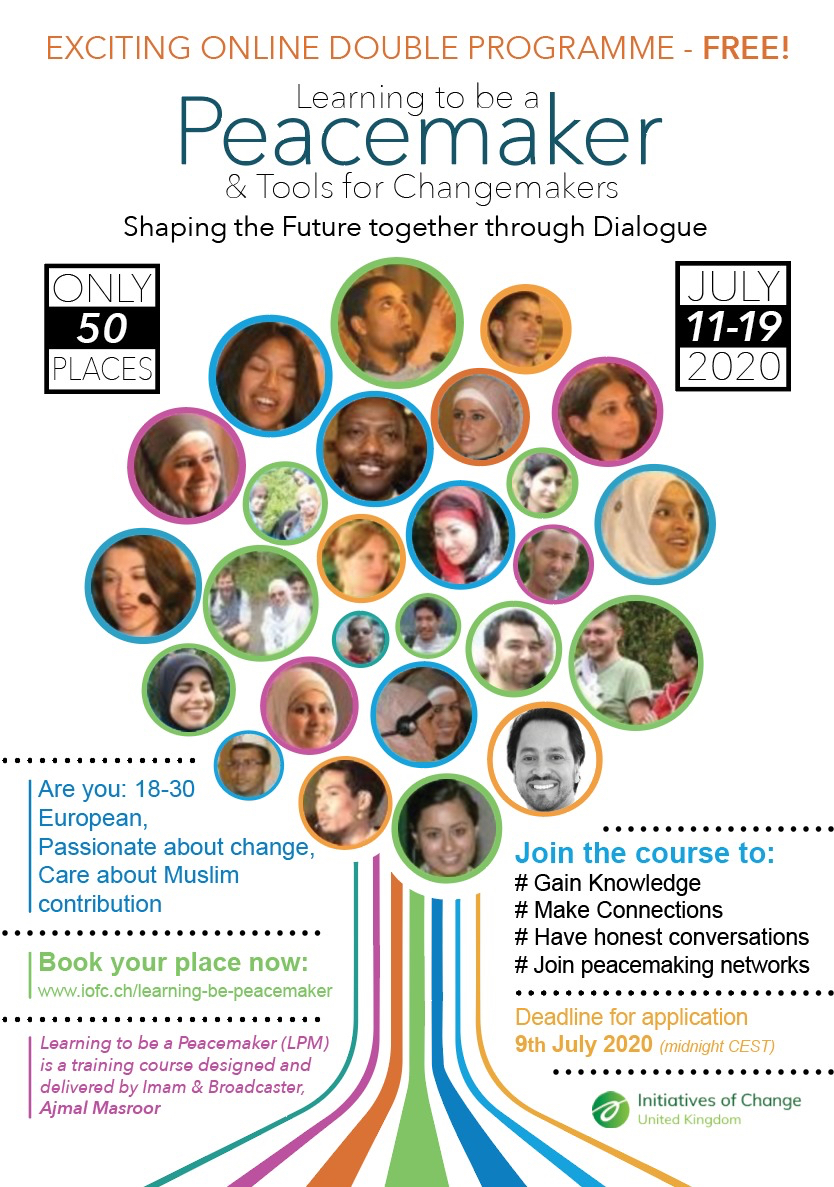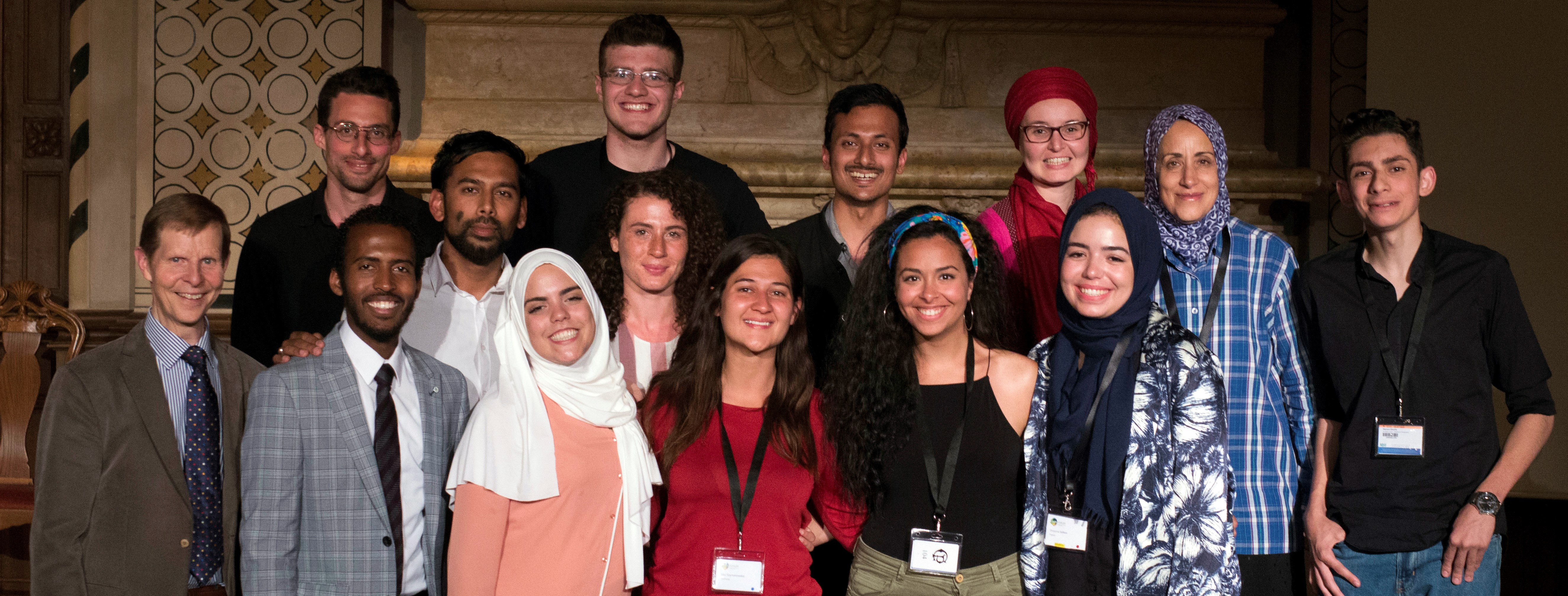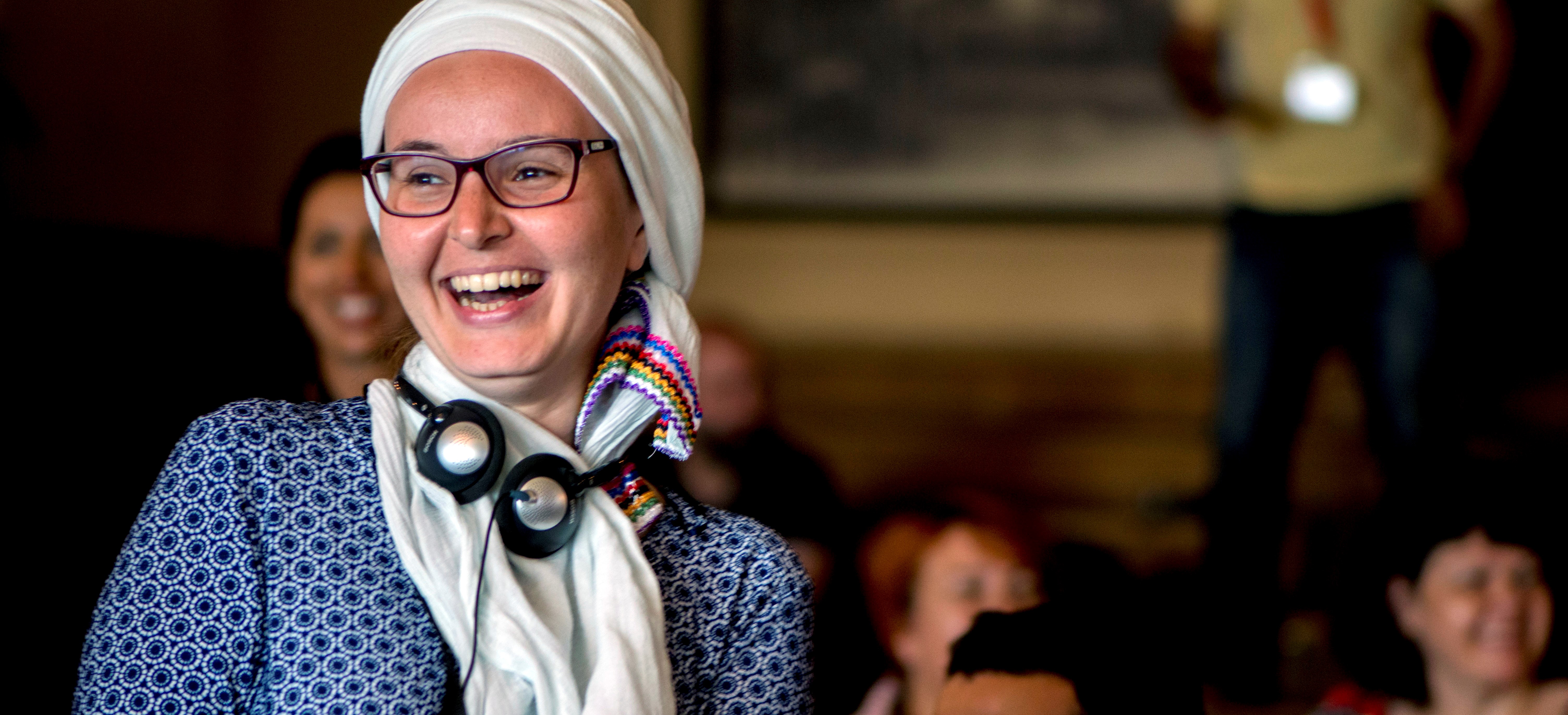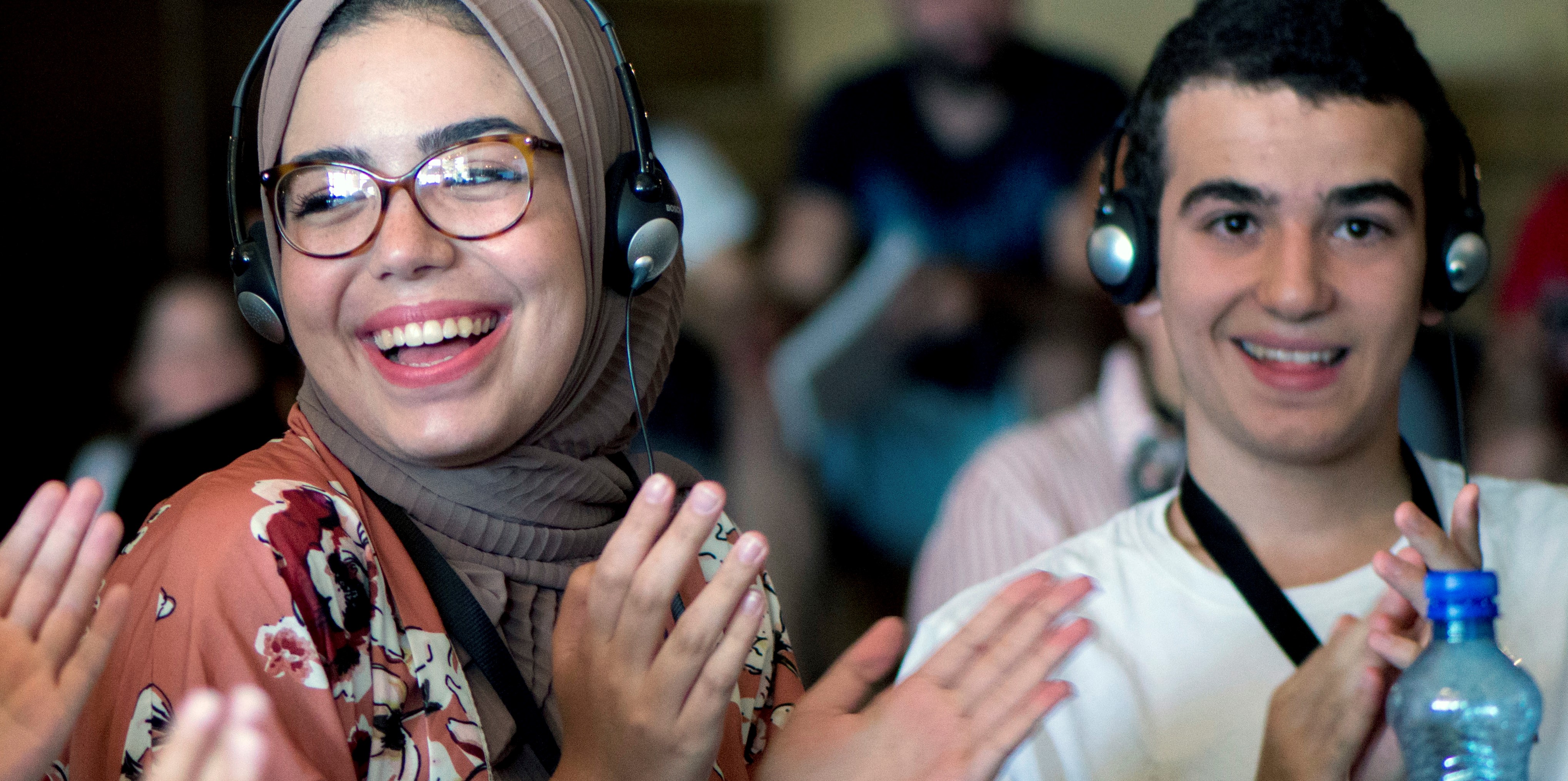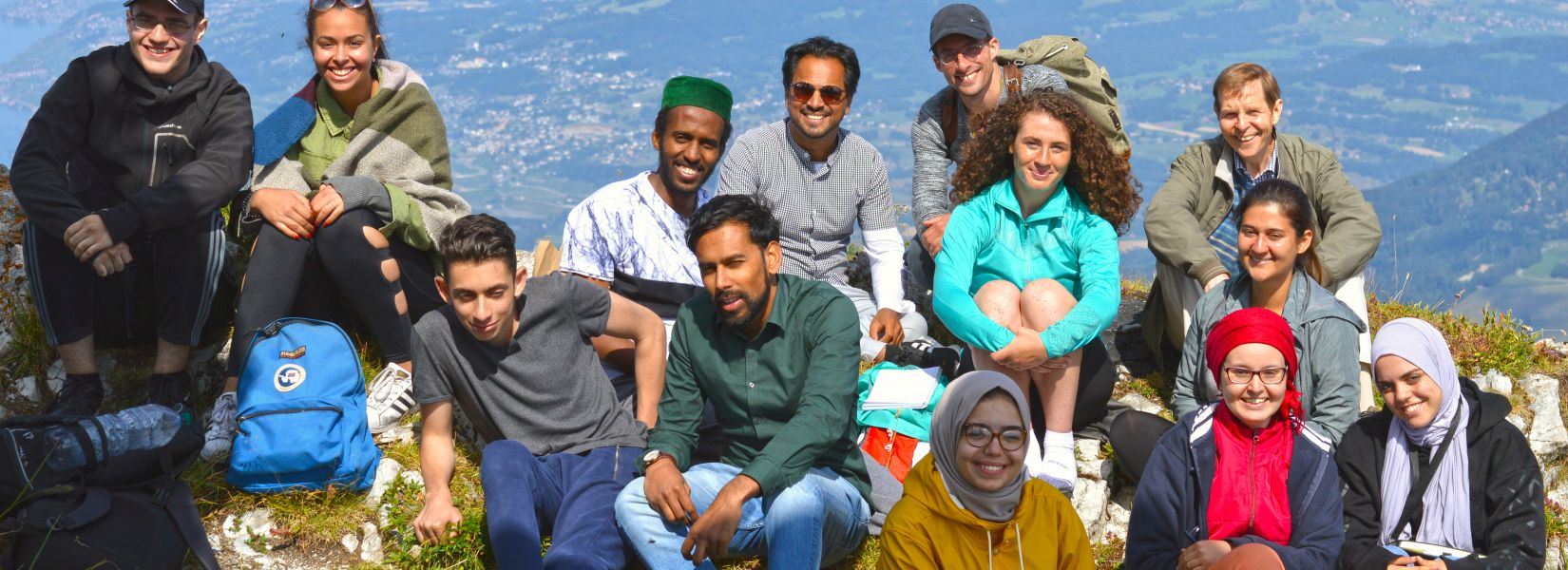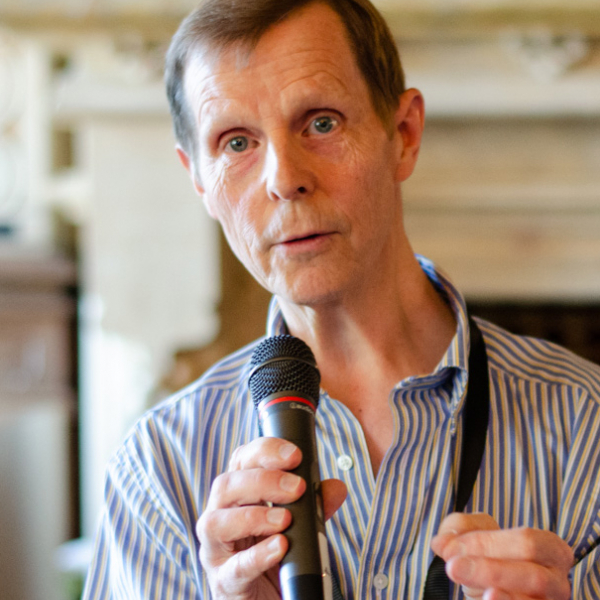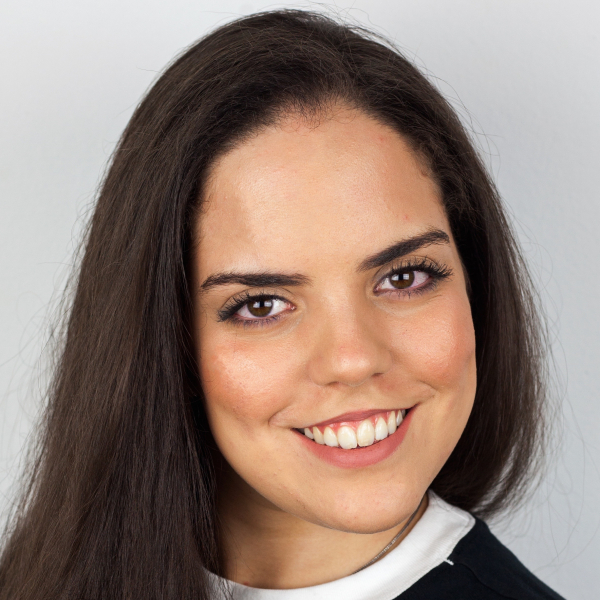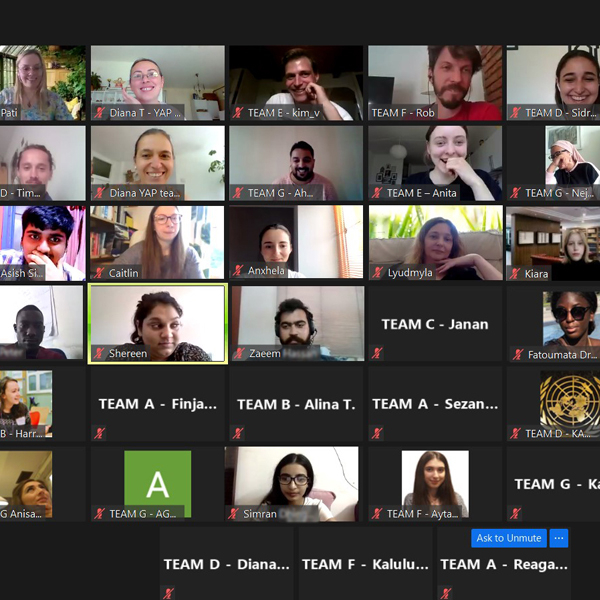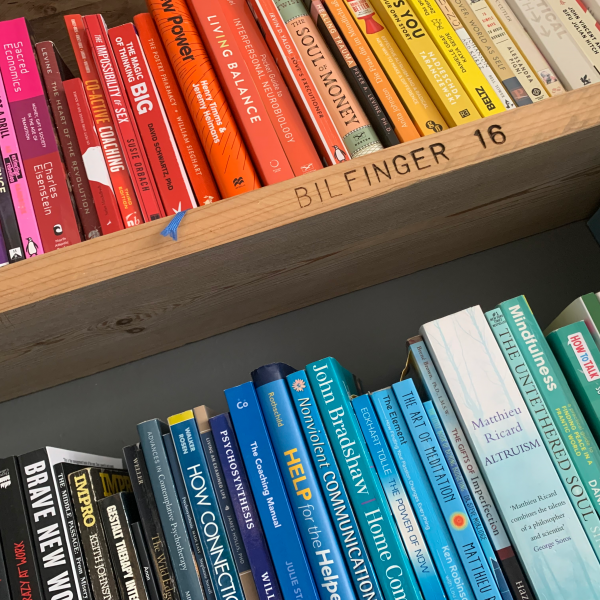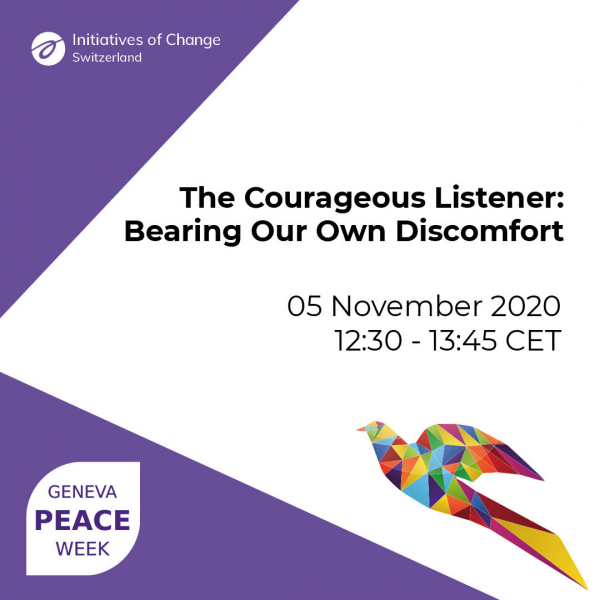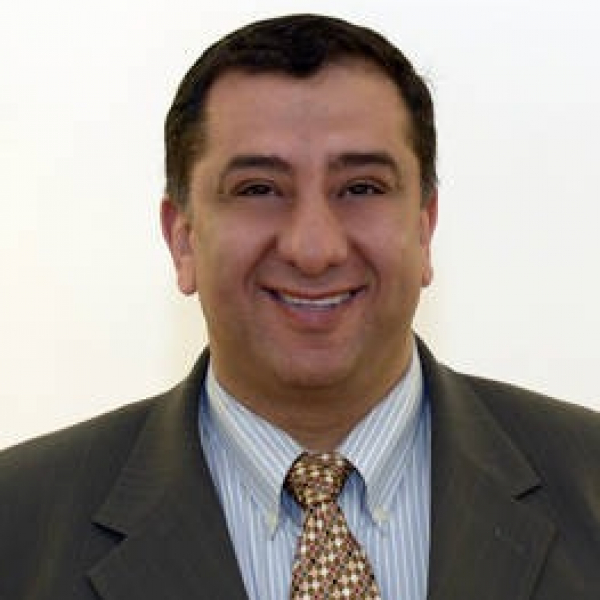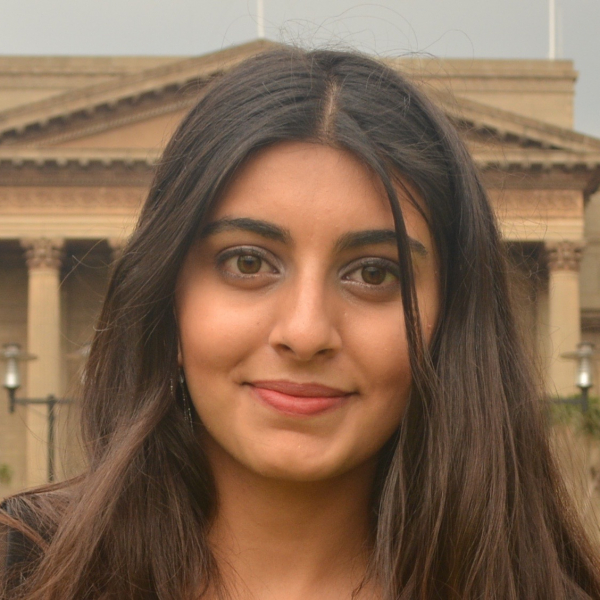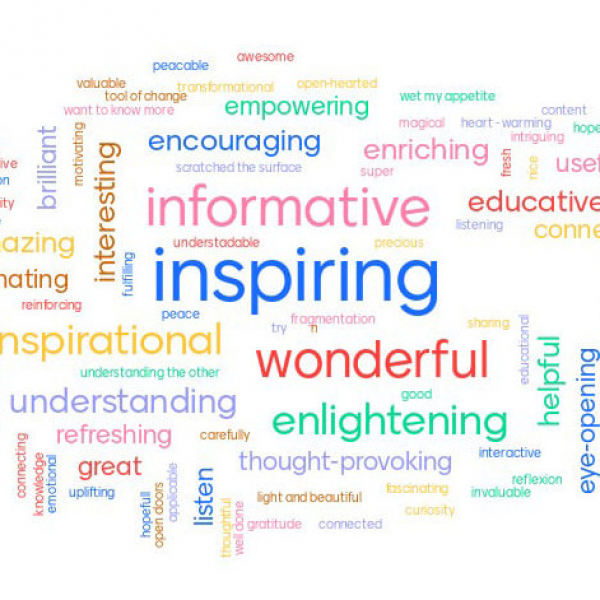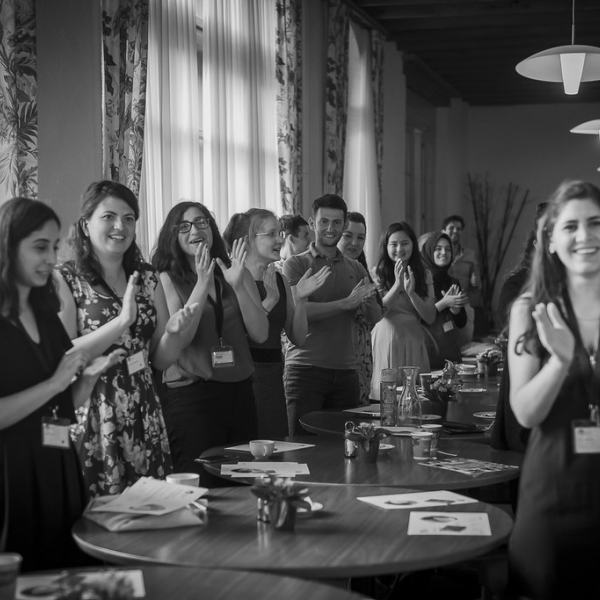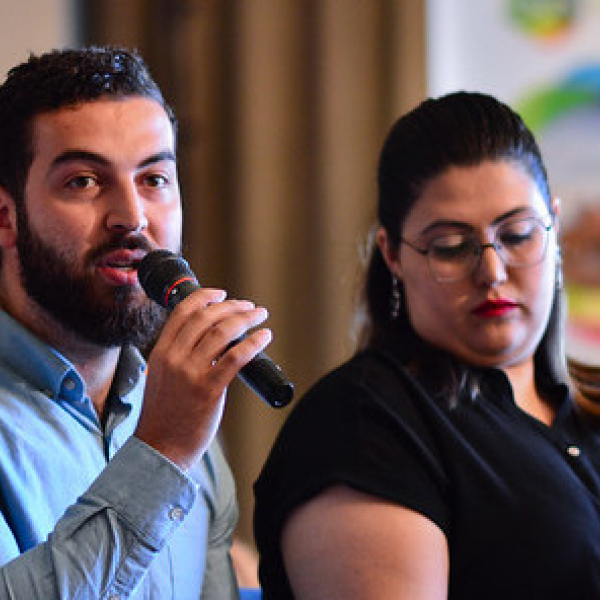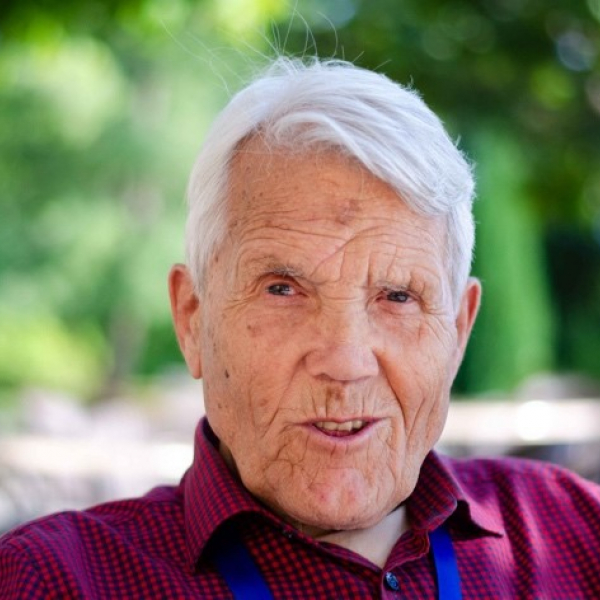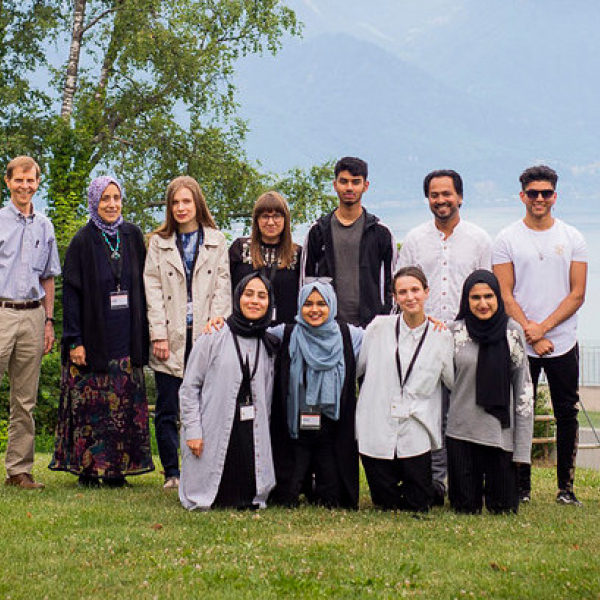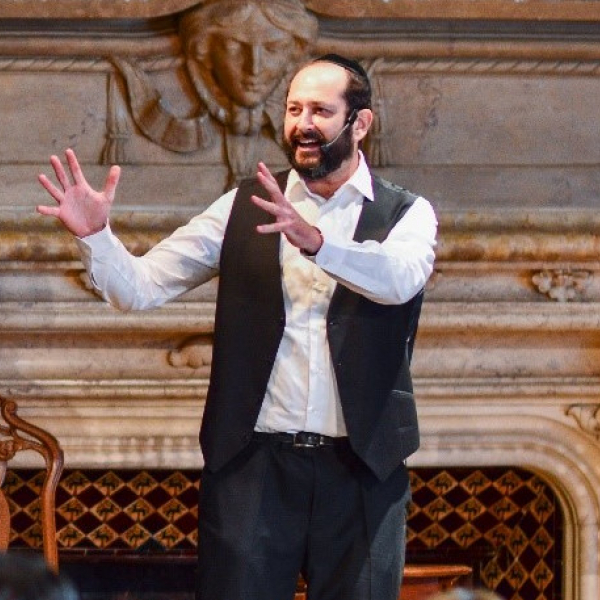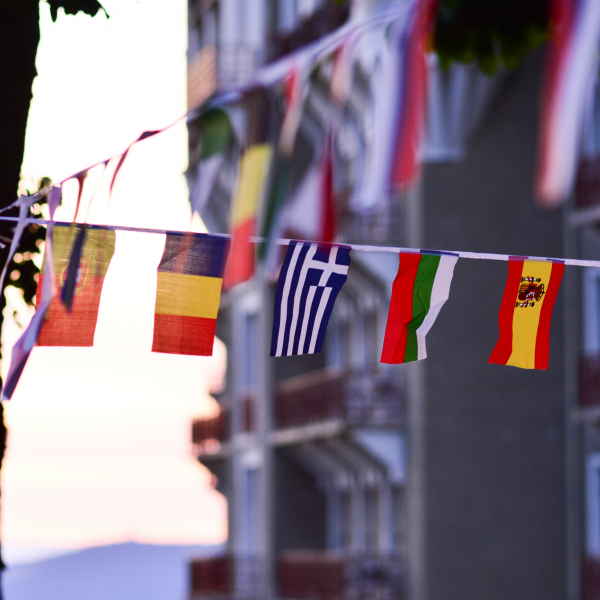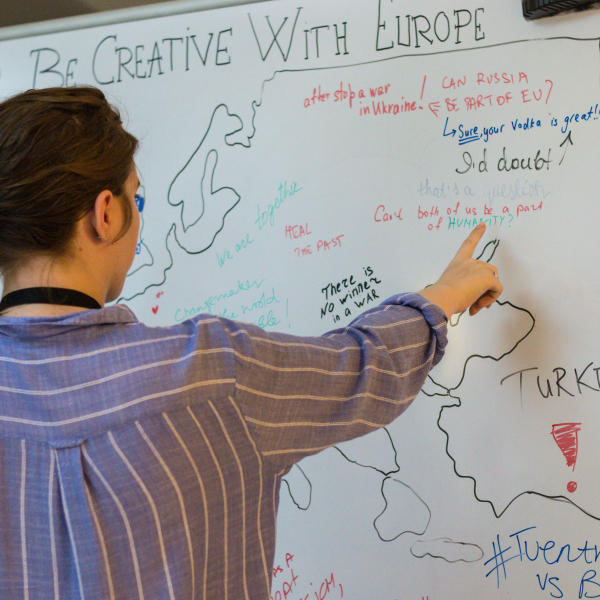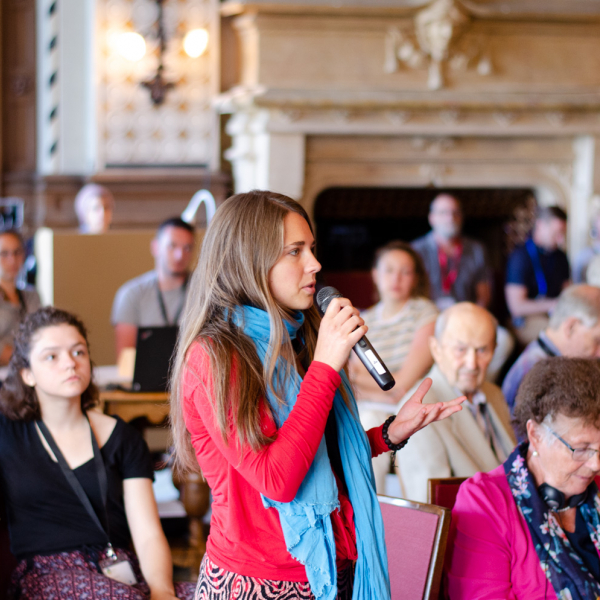Exciting free online double programme
PLEASE NOTE THAT THIS EVENT IS NOW OVER!
If you are aged 18-30 and passionate about global change and Muslims’ contribution to it, then the Learning to be a Peacemaker programme is for you! The programme offers 50 available places!
The 8-day online programme, 11-19 July 2020 combines two unique elements:
- 11-15 July – Learning to be a Peacemaker, a five-day course for young European Muslims and their non-Muslim peers on Islamic approaches to peacemaking
- 16 July – Free day between the two programmes
Discover the detailled programme here.
Read the 2020 report here
Learning to be a Peacemaker (LPM) is a training course designed by Imam and broadcaster, Ajmal Masroor.
Its aim is to offer:
- Knowledge – providing factual information about the peacemaking culture in Islam and the wider context
- Connection – offering relationship-building opportunities between young European Muslims and their counterparts in wider society
- Dialogue – empowering young European Muslims and their peers of other beliefs to hold honest conversations
- Networking – connecting young people across Europe who may find shared inspiration to take initiatives for peacemaking and building trust across divides
Peace and justice are the two most sacred principles which underpin every aspect of a Muslim’s life. Therefore becoming a peacemaker is the most important role a Muslim can play. Learning about peace and justice is the first step towards this goal.
This programme believes that learning to be a peacemaker is key to developing a confident European Muslim identity and contributing towards global change.
- Knowledge – providing factual information about the peacemaking culture in Islam and the wider context
- Connection – offering relationship-building opportunities between young European Muslims and their counterparts in wider society
- Dialogue – empowering young European Muslims and their peers of other beliefs to hold honest conversations
- Networking – connecting young people across Europe who may find shared inspiration to take initiatives for peacemaking and building trust across divides
Peace and justice are the two most sacred principles which underpin every aspect of a Muslim’s life. Therefore becoming a peacemaker is the most important role a Muslim can play. Learning about peace and justice is the first step towards this goal.
This programme believes that learning to be a peacemaker is key to developing a confident European Muslim identity and contributing towards global change.
Young European Muslims were either born or brought up here. Their parents straddle ethnic and European cultures and often have an expectation that their children will be culturally more ethnic. However, many young Muslims are more familiar and at home with European culture, and Europe is ‘home’.
This programme defuses that tension and helps make young Muslims’ European and Islamic identities symbiotic. In the current environment of increasing hostility towards Islam, Muslims are often viewed with suspicion. It is imperative to help young Muslims form a confident European Muslim identity. Islam requires Muslims to be at peace with themselves and others.
We are currently witnessing the proliferation of terrorism, extremism, death and destruction all over the world. Many cities across Europe have suffered terrible attacks and many lives have been lost. Most of these recent attacks have been attributed to terrorism inspired by Islam. However, terrorism has no religion, race or colour. It is simply evil. The most serious consequence has been the fissure that has developed between communities.
This course will help young Muslims to understand that they can play an important role in bringing communities together. It will help them engage in honest conversation which brings root causes of conflict to light, builds trust and heals. In the same way, those who are not Muslims will gain a better understanding of their friends and neighbours who are Muslim, build better relationships and friendships, and consequently create a more cohesive society.
- An introduction to issues of war and peace in today’s world: the origins and dynamics of conflicts, and processes of containment and reconciliation
- The Jurisprudence (fiqh) of Peacemaking: the Islamic principles of peacemaking, examination of Islamic texts and their application in context
- War and Peace: examining Quranic texts and prophetic traditions in relation to averting war and building peace
- Prophets and Peacemaking: an inclusive study of other prophets’ and traditions’ peacemaking initiatives
- Violence and Extremism: dismantling the dominant narrative which associates violence and extremism with Muslims as people and with Islam as their religion
- Loyalty and Citizenship: learning to think globally but act locally; examining responsibility and belonging in the light of changing realities
- Inner Dimensions of Peace: a spiritual realignment of Muslims’ beliefs and practices, developing social and political conscience, and sharing inner contentment
- The Characteristics of Peacemakers: qualities and attributes needed to become peacemakers and effect global change
The training style is interactive, with introductions to the subject matter by Muslim and other authorities, whole-group and small-group discussions and presentations.
At the end of the course, participants will plan a practical project to undertake at home to demonstrate learning and commitment to peacemaking.
- ‘I have learned that if you have no peace within yourself, you can’t make peace.’
- ‘I learned how to acknowledge and appreciate others for what and how they are, without requiring them to change as I want.’
- ‘It was only when I met people from all over Europe who held me in their hearts, that I came to hold Europe in my heart.’
- ‘I have learned the importance of being a good citizen from an Islamic viewpoint and that it is important to serve your community where you live.’
- ‘The session on Prophet Muhammad (pbuh) the Peacemaker was the most valuable lesson. Following and understanding his actions, would definitely make one a better peacemaker.’
- ‘As a non-Muslim, whilst my knowledge of Islam grew, conversations with friends from France, Sweden and the UK widened my understanding of what it means to be a Muslim today in a sometimes hostile society.’
- ‘Through the two programmes, I have seen the world better through the prism of Islam as a Muslim trained in peacemaking, and through the eyes of non-Muslim Europeans and how they see the challenges we face with immigration, identity and multiculturalism in the future.’
The programme is free of charge, but voluntary donations are requested, particularly as IofC Switzerland, which is responsible for the Caux Conference and Seminar Centre, is facing severe financial difficulties.
Applicants for the programme are expected to:
- Be aged 18-30
- Be resident in Europe
- Have a good standard of spoken and written English
- Have a serious interest in the subject
- Be actively involved in serving your community at community, national or international level
- Actively participate in the whole programme
- Email your CV
back
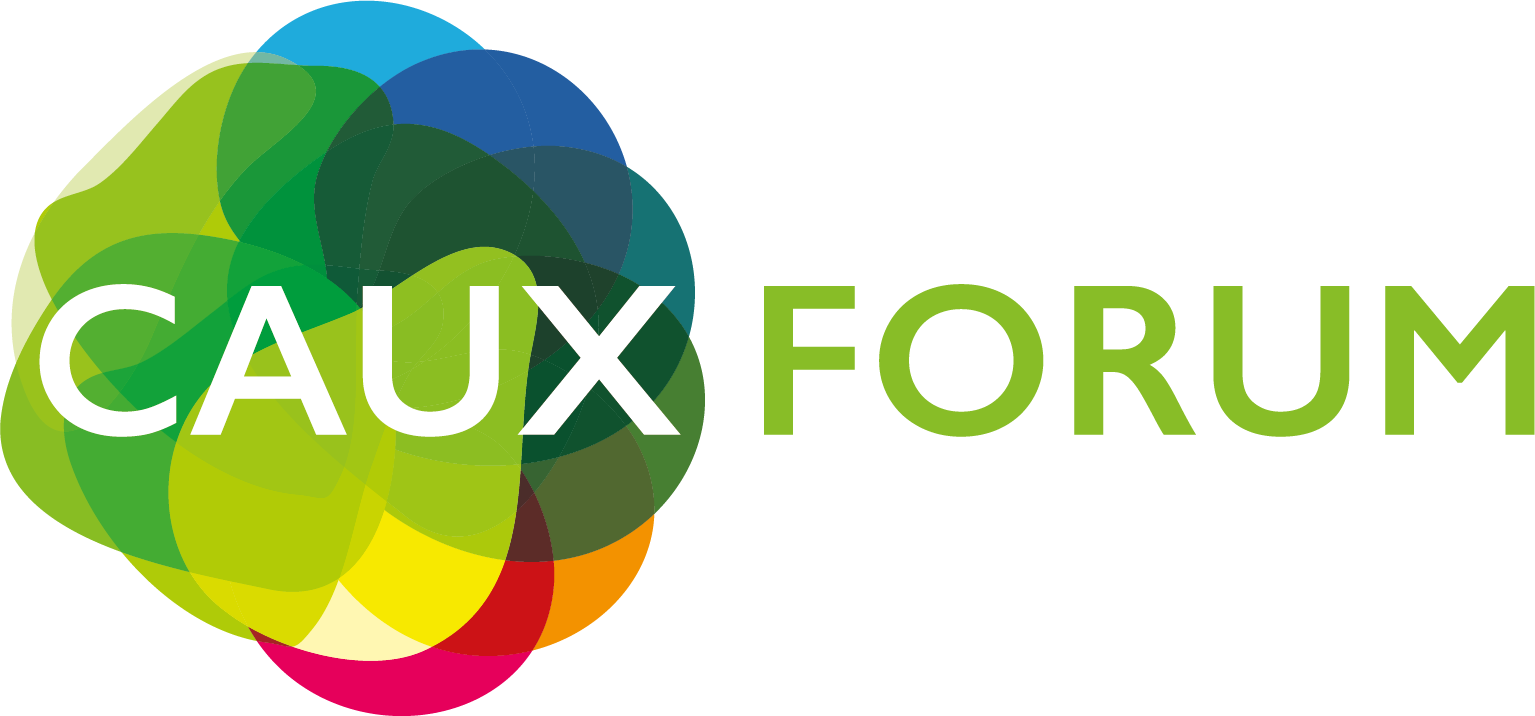
Learning to be a Peacemaker 2020 - Programme
programme
Saturday, 11 July
Introduction & Peacemakers' Jurisprudence
Ethics of Disagreement
Islamic Law and its Objectives
Maqasid of Shari’ah
Sunday, 12 July
War and Peace
Jihad
Overview of Peacemaking
Global context
Monday, 13 July
Prophet the Peacemaker
Treaty of Hudaibiya
Violence and Extremism
The concept of Islah (reconciliation)
Tuesday, 14 July
Loyalty and Citizenship
Understanding Citizenship
Inner Peace
The contentment of the heart
Wednesday, 15 July
Characteristics of Peacemakers
Makarim al-Akhlaq
Project Design & Implementation
Design your own project

